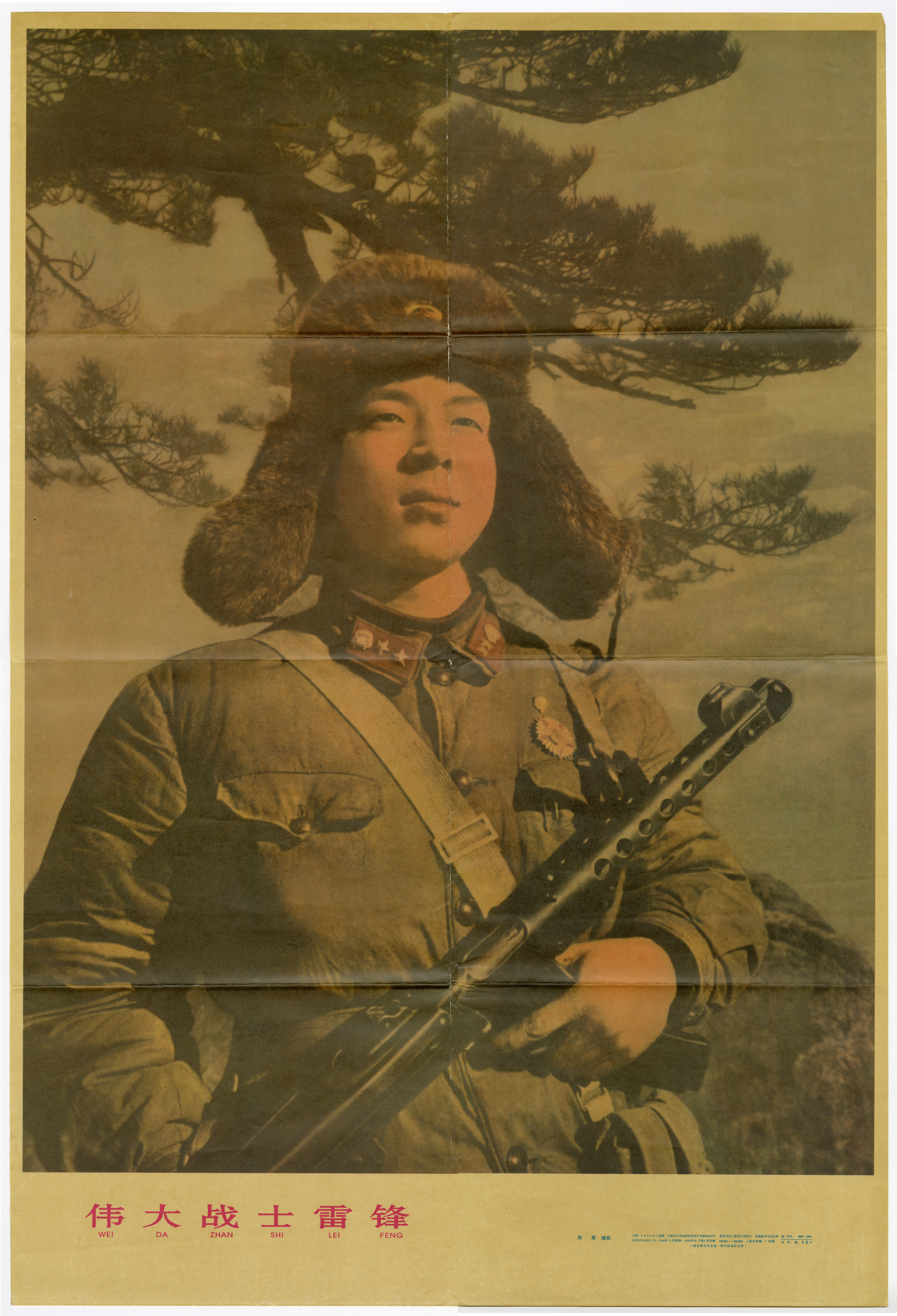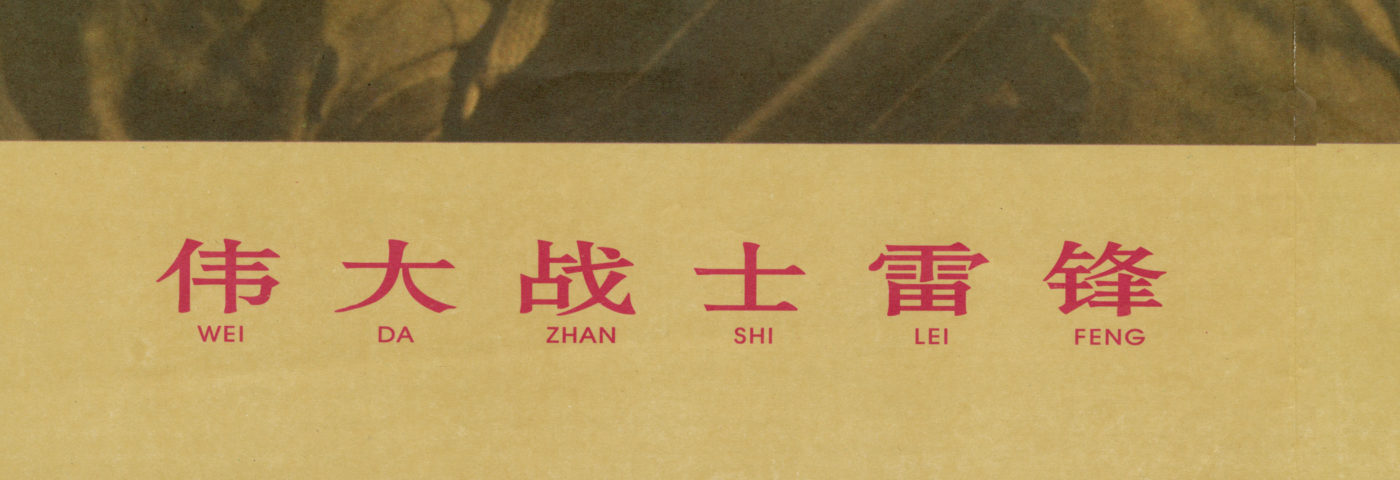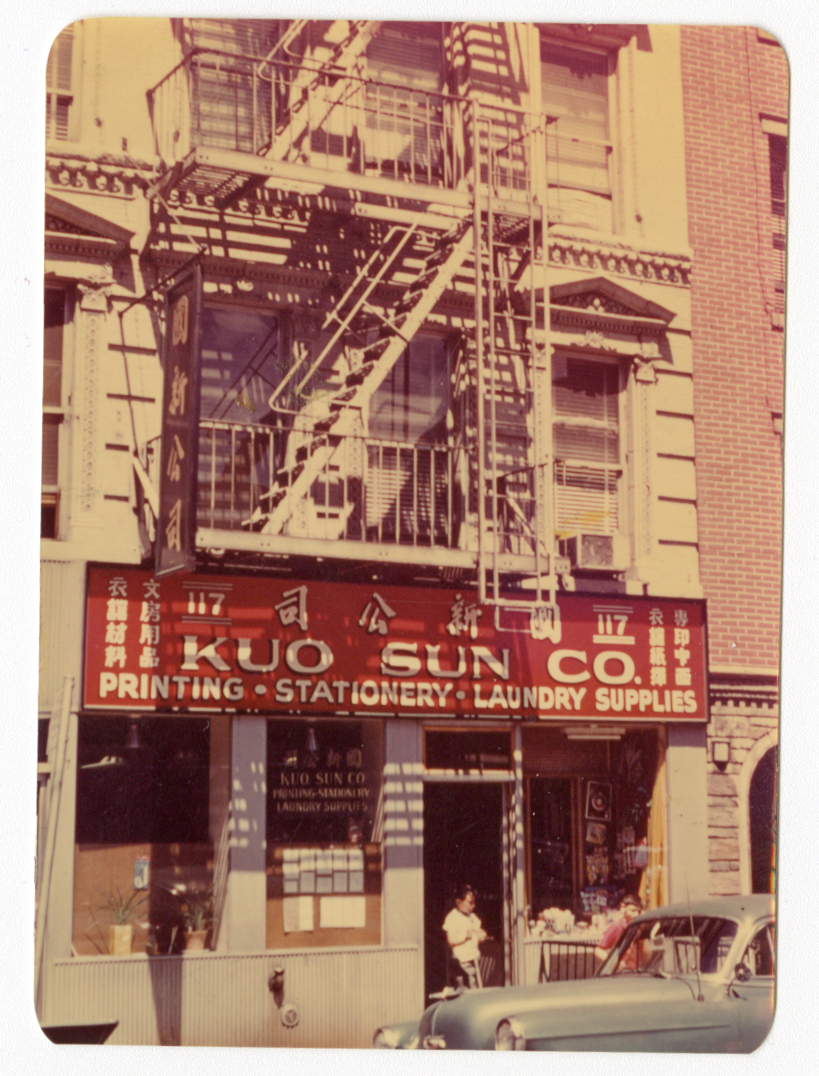Altruistic is often the term associated with the man wearing a giant Ushanka holding a domestically made USSR-era weapon looking into the distance. His name was Lei Feng, and many stories abound about his life as a soldier of the People’s Liberation Army and much of it surfaced following his death in 1962. There is a dispute over how Lei Feng perished, but it is often a variation of being killed in a work accident involving a truck and a knocked-down electricity pole. If one looks deeper into the story of Lei Feng, one will come to realize that many aspects of his life and story are brought up for debate regarding their truthfulness. But, MOCA will not be discussing what is fact and fiction about Lei Feng but instead will focus on his prevalence in the minds of the more recent waves of Chinese immigrants that moved to the United States beginning in the 80s.
2023.003.001 Communist Chinese Poster – Lei Feng


Lei Feng was catapulted from anonymity to a national icon following his death and the supposed discovery of his diary that detailed his selflessness, bravery, and adherence to the ideals of Chinese communism. It was so widespread that the name “Lei Feng” has transformed into an adjective to describe someone who is a Good Samaritan (the phrase used would be 活雷锋, or “living Lei Feng” in direct translation). Chinese citizens would come to know the phrase “Learn from Lei Feng” and children would read his diary and sing songs about him in school. Many Chinese staff members at MOCA have parents and friends with parents (aka our collective Uncles and Aunties) who lived through the 60s, 70s, and 80s period when Lei Feng was prevalent in everyone’s minds. The collective consensus among our friends and family is that comrade Lei was always portrayed as the ideal citizen who exemplifies selflessness in the community and state.
It is interesting how much an image invokes memory for a generation of Chinese immigrants. One staffer sent the image to their mother and immediately received a call from her and a long discussion about her memories as a little primary school kid singing songs about Comrade Lei Feng. Perhaps our readers can do something similar and share this iconic poster with someone who lived in China during the late 1900s to see if they remember this man with the Ushanka hat.


